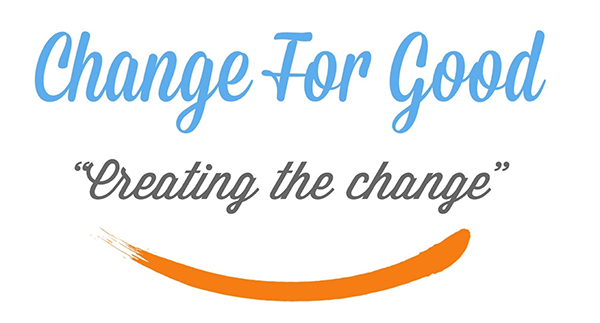Trauma sensitive education
Just wanted to share some of thoughts around incorporating trauma sensitive practice into the classroom.
Depending not the state and jurisdiction, often schools have a focus on attaining learning outcomes. Where for many children and young people the focusing on their emotional wellbeing with assist them to attain the full potential.
Therefore as a very minimal baseline there is a need to recognise that Trauma undermines children's ability to learn, trust, and regularl regulate their own thoughts, affect and behaviour.
It is therefore crucial that teachers are provided the training and understanding to ensure the benefits that trauma sensitive education can bring can helps teachers learn how too assist self regulation of many children who will be seen due to there acting out (hyperarosual) or acting in behaviours (hyparosual).
This can then clear the path for learning better ways of self regulation in the classroom
Problems teachers encounter:
- withdrawal,
- oppositional behaviour,
- attention problems,
- difficulties with learning
Trauma sensitive components to consider in the classroom
- Selfcare: caring for the educators is crucial. For many years my core concept has been to support the 'primary' carers and individuals who can make a difference in the child's life. This is so important, supervision, training and support are crucial.
- Knowledge about trauma: training and the shared language this brings can be extremely helpful to create a trauma sensitive culture.
- Trauma lens
- Safety and trust
- Self regulation
- Stable relationships
- Working as a team
(1) Knowledge of trauma
- Small window of tolerance
- Poor self regulation
- Triggers
- Invisible suitcase (beliefs they have about self, others and world... Filled during their developmental years). Helpful for teachers to understand their own beliefs. This gives hope to re pack suitcase with positive beliefs.
E.g child who is oppositional in terms of behaviour, needs to be seen as being out of window of tolerance, child needs to be helped to calm and regulate.
(2) Looking through the trauma lens
The behaviour is the tip of iceberg, change of behaviour requires connecting with feeling and thoughts.
This creates more safety and trust in Relationships. This provides
- Increase predictability
- Give a child a feeling of control
- Create safe spot in the classroom (lots of things to help regulate, don't need to leave classroom, focussing on decreasing stress reactions)
- Help child deal with triggers ( you can then develop a plan with the child), observe child for a week, you then have a overview, big investment is worth it.
(3) Stable relationships
- Non verbal communication much more important then verbal ( could continually looking and accessing)
- Keep expectations
- Search for talents and interests
- Practice social skills on a basic level (role play)
- Connect before you correct: approach the child while staying calm, connect to feelings and thoughts, show empathy and understanding (needs practice due to teachers own stress reaction)
- Use stress busters
- Time in vs time out (need possibilities for time in, safe spot in class or time with teacher's, not moving to other space unless totally necessary.
Correcting then..
- Tell and show what the wanted behaviours were
- Relate consequence to behaviour
- Help child to continue the day
(4) Helping traumatized children with self regulation
When children are able to self regulate their styles they are conscious if their inner world, and have control over thoughts, behaviour and emotions.
Traumatized children are often overwhelmed with emotions (experience triggers) and have less skills for self regulation.
Traumatized children need help with self regulation.
Marshmallow test: illustrates self control and self regulation.
(See university of Rochester video).
Shows if adults are reliable and world is seen as reliable then increases self control. Should the child act impulsively or wait longer term. The delay in gratification not only reflects capacity fit control but also the practicality of waiting.
(5) Translating into the classroom
- Being a co regulator
- Recognising the beginning of self regulation skills and make use of these e.g sitting in hands, or behaviours is seen as negative, they are trying to self regulate such as rocking in chair
- Develop language together with the child to talk about experiences (emotions etc)
- Offering children specific activities to train executive functioning
- Regular alternation of activities
- Regular exercise
- Brain breaks
- Singing
- Yoga and mindfulness
- E.g MeMoves (developed in USA, very interesting approach) first thing in morning, they play calming music, teachers speak very positively about using in transitions etc)
http://thinkingmoves.com
To be a co regulator
- Need to be mindful of what's going on in self and in situation
- Act in line with emotions underneath the behavior of child, oppositional behaviour = could was frightened need to calm etc
- Be aware of your Non verbal behaviour
Recognising beginning of self regulate
- Which behaviour do children show when they are trying to regulate
- What can you do when you see the behaviour?
- Make use of it...
Develop language with children
- Find out what words increase stress levels and find alternatives
- Use gestures
- Use visual appliances like a stress thermometer
- Use metaphor, volcano, volume button,
- Balloon filling up, until it bursts etc
Talk about experiences
- Normalize experiences, often children can feel... I can remember another child who wanted to leave class when it became really noisy
- Tell them what you see happening
Taking care of yourself to help traumatized children
This is the foundation and base of the approach, it's the core.
The cost of caring...
- Secondary traumatic stress
- Compassion fatigue
- Vicarious trauma
It is emotionally devastating, it's difficult to recognise without heightened awareness, the outside sources that cause it unavoidable.
Why do caregivers / teachers neglect self care?
- Don't get enough time for reflection
- Distress disguised in medical complaints (increased sickness)
- They know what they need, move to part time work
Who is at risk?
Anybody who works with traumatised people's
Greater risk: Highly empathic, those not trained etc
What helps?
- Early recognition and self knowledge
- Social support
- Mini escapes
- Structures in day




